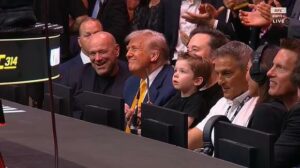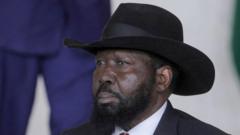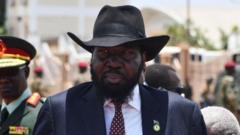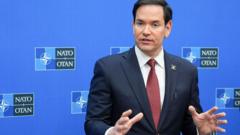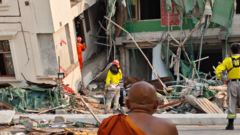The Panama Canal Authority has firmly rejected claims made by the US State Department, clarifying that no changes to canal tolls exist despite US assertions of cost-free passage for government vessels.
Panama Refutes US Claims on Canal Transit Fees
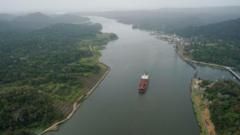
Panama Refutes US Claims on Canal Transit Fees
Panama denies White House allegations regarding free US vessel transits through the Panama Canal.
Panama's government has taken a strong stance against recent claims made by the US regarding the transit of government vessels through the Panama Canal. The White House had earlier announced that it had reached an agreement for US ships to cross the canal without incurring toll fees, a move that was said to save the US government millions annually. However, the Panama Canal Authority (ACP) quickly countered these assertions, explaining that it retains the authority to set transit tolls and has made no alterations to existing fee structures.
This controversy has gained traction amid ongoing discussions concerning US influence in the region, particularly regarding China's involvement in Panama. Secretary of State Marco Rubio, currently on a diplomatic mission in Latin America, has pressured Panama to address what he views as an overreach of Chinese influence at the canal, emphasizing a need for "immediate changes." Rubio met with President José Raúl Mulino and canal administrator Ricaurte Vásquez Morales during his visit, where he suggested the US might take action to safeguard its interests under a longstanding treaty if Panama does not comply.
The Panama Canal plays a pivotal role in global trade, with US vessels comprising a significant portion of its traffic—52% of transits in 2024 had either their ports of origin or destination in the United States. Each year, approximately 14,000 ships navigate the canal, making it essential for avoiding the lengthy routing around South America.
President Trump, who previously expressed intentions to "retake" control of the canal, has amplified his claims about China's role in its operations, asserting that Panama has not upheld its commitment to neutrality. However, President Mulino has steadfastly denied any foreign interference, asserting that the canal remains exclusively under Panamanian management. He also declared that Panama would discontinue its participation in China's Belt and Road Initiative, a program aimed at enhancing infrastructure and economic ties.
The history between the two nations regarding the canal is fraught with complexity, dating back to the early 20th Century when the US constructed the waterway. Following substantial pressures and a push for sovereignty, the US government ultimately signed a treaty with Panama in 1977, facilitating a gradual return of control, a decision Trump has criticized as a "big mistake."








